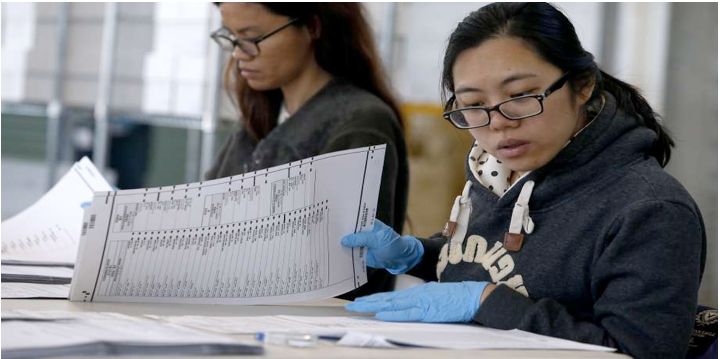CommentsTHIS IS WHAT I KNOW-Just days before the delegates arrive in Cleveland for the GOP convention and less than two weeks before the Democrats gather in Philadelphia, California officials have been busy certifying the over 8.5 million ballots cast last month. Voters and local election officials alike have been scratching their heads about confusing rules and overlapping that occurred during the primary voting process.
Most complaints stem from the dissimilar rules governing both presidential and statewide elections. Primaries for state offices are open; voters can choose candidates across party lines. Rules for the presidential primary differ and are governed by the political party.
Independent (no party preference) voters were able to vote for either Hillary Clinton or Bernie Sanders in the Democratic primary but were not permitted to vote in the GOP primary. Independent voters were required by the Democratic Party to use a designated “crossover” ballot which did not include a vote for the party’s governing committee. This special ballot was only presented to unaffiliated voters if they asked for it.
Furthermore, local election officials were held to enforcing the rules – and procedures were inconsistent from county to county. Training for poll workers isn’t even consistent throughout the state. Activists have alleged that independent voters may not have had the chance to vote for Sanders. Election Day reports pointed out a number of “polling place flash points” where poll workers either gave the wrong advice or weren’t using the latest roster of registered voters.
After there were some suspected uncounted provisional ballots in other states, Sanders supporters in California used social media to inform people to refuse provisional ballots. At the same time, election officials noted the state election law gives wide discretion to accept provisional ballots. Reports from Contra Costa County concluded eighty-eight percent of the county’s provisional ballots were counted. Eighty-seven percent of Los Angeles County’s over 268,000 provisional ballots were counted.
In the days following the June 7 primary, more private citizens than usual were showing up to watch over the tallying of provisional ballots and in San Diego, social media activists accused election workers of changing provisional ballots.
Snafus happened when voters showed up at different polling places than where they were registered and ended up mistakenly voting for down-ticket races for which they weren’t eligible to vote. In San Diego, workers redacted those particular votes with white correction tape, leaving in place the votes for president and U.S. Senate. In other counties, election workers were copying the voter’s choices to a clear ballot, similar to what happens with damaged ballots. An activist group in San Diego has filed a lawsuit claiming that the procedures followed to recount the required manual recount of one percent of the ballots were incorrect.
Additional problems occurred when voters who don’t typically go to the polls were confused about their party affiliation. For example, some voters believed they were registered independents (who could receive provisional ballots for the presidential primary) but were, in reality, members of California’s American Independent Party.
In Riverside County, allegations were levied that changes may have been tampered with in the state’s online registration portal to change part affiliation, charges Secretary of State Alex Padilla denies.
Election changes in 2014 allow for completed vote-by-mail ballots to arrive as late as 72 hours after the polls close, provided they are postmarked on Election Day. This typically causes late counting in less populated counties.
In elections with such a wide array of ballots by both party affiliation and language, as well as such large numbers of candidates like the 34 primary candidates for the U.S. Senate race in California, voting systems need to be updated. More money is needed to expand voter communications and to pay for mandated procedures to ensure fair, uniform elections and equal treatment of voters throughout the state.
(Beth Cone Kramer is a successful Los Angeles writer and a columnist for CityWatch.) Edited for CityWatch by Linda Abrams.
Sidebar

 CityWatch Los Angeles
Politics. Perspective. Participation.
CityWatch Los Angeles
Politics. Perspective. Participation.
06
Mon, May















